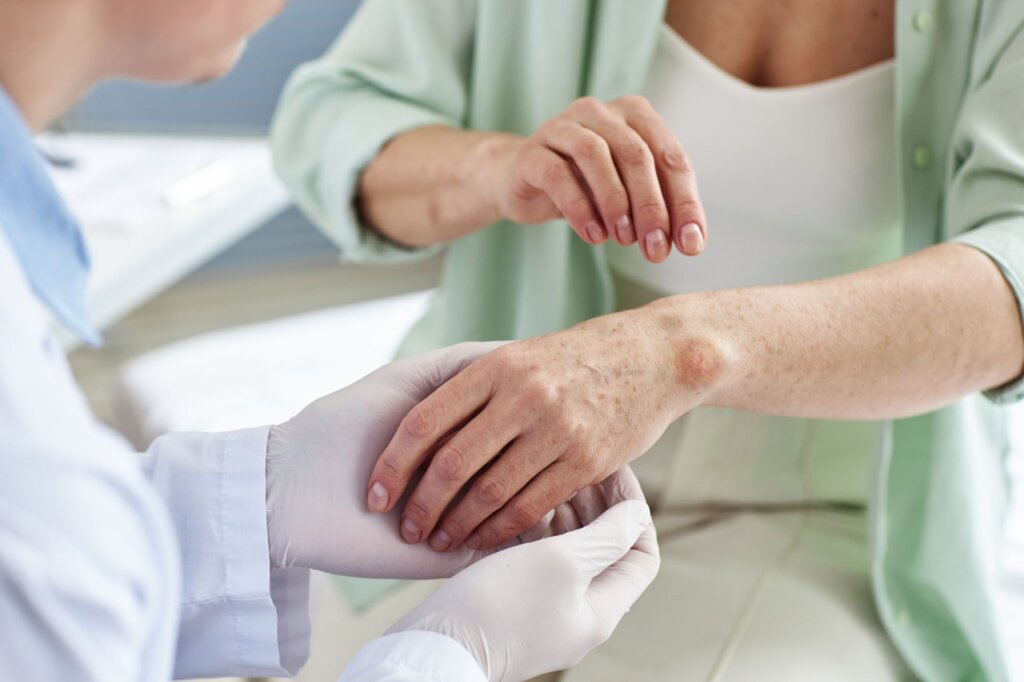When it comes to skin health, allergies are often the silent culprits behind some of the most common dermatological issues. Understanding the connection between your skin and allergies can help you manage or even prevent flare-ups. Here’s a look at some frequent skin conditions that may have more to do with allergies than you’d think.
Atopic Dermatitis (Eczema)
Atopic dermatitis (eczema) is characterized by dry, itchy, and inflamed skin, and it’s one of the most common skin conditions—especially among children. While most causes of eczema include a mix of genetic and environmental factors, allergens can trigger or exacerbate symptoms. Atopic dermatitis has also been linked to asthma and a higher risk of food allergies. Managing eczema effectively often involves identifying triggers, keeping the skin well-moisturized, and using prescribed anti-inflammatory medications during flare-ups.

Allergic Contact Dermatitis
Unlike eczema, allergic contact dermatitis occurs when your skin comes into direct contact with an allergen. This reaction can lead to red, itchy, and sometimes blistering skin. Common triggers include nickel—which is commonly found in jewelry—latex, and chemicals in cosmetics and skincare products. Identifying and avoiding the allergens are key, and allergy testing can be a valuable tool in determining what substances cause reactions.
Urticaria (Hives)
Hives are red, raised, and often itchy welts on the skin that can appear suddenly as an allergic reaction to food, medication, insect stings, or other irritants. These rashes can also be triggered by non-allergic causes like stress or temperature changes. Treatment typically identifying and avoiding the trigger to prevent future episodes, as well as physician-recommended treatment plans.
Angioedema
While related to hives, angioedema involves deeper swelling within the skin, especially around the eyes and lips, and sometimes the hands, feet, and throat. This condition can be dangerous if swelling occurs in the throat, potentially obstructing the airway and causing breathing problems. Immediate medical treatment with epinephrine might be necessary, and those known to have severe reactions may be professionally advised to carry an epinephrine auto-injector (such as an EPIPEN®).
Key Takeaways
Recognizing the role of allergies in these common skin conditions is the first step towards better management and treatment. If you suspect that your skin issues might be related to allergies, consider consulting with a healthcare provider for appropriate testing and treatment strategies. With the right approach, you can not only treat but also prevent the recurrence of these uncomfortable and sometimes dangerous symptoms.
This blog post is intended for informational purposes only and does not constitute professional medical advice. If you have further questions or would like more information, schedule an appointment with your primary care provider.